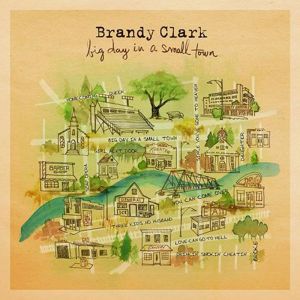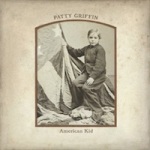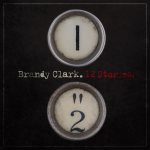 Miranda Lambert does whatever she wants.
Miranda Lambert does whatever she wants.
That much is evident from this second leg of her On Fire tour, which rolled into Boston Friday night (July 27) during a week that saw Lambert perform on Good Morning America and co-host The View.
I’ve been following Lambert’s career for nine years now, ever since she first stepped on the Nashville Star stage in 2003. Her “Greyhound Bound For Nowhere” original song night performance solidified my adoration and I knew, if given the chance, she could be the top female singer in country music.
It was a slow climb, but she made it, even when I had doubts country radio would ever stop giving her a cold shoulder. And judging by the enthusiastic crowd at the show, it seems I’m not the only one to ride on the Miranda train.
The show kicked off with Loretta Lynn speaking via tape, telling the crowd her stance that country music will always be okay as long as Lambert’s around, followed by a fabulous montage of strong women set to Beyonce’s “Run The World (Girls).”
Lambert then came out with guns blazing on “Fastest Girl In Town,” which set the tone for the night. Rockers of all shapes and sizes followed as she rolled through “Kerosene” and her charging cover of John Prine’s “That’s The Way The World Goes ‘Round.” She then slowed down long enough to perfectly execute “Over You,” which came sans any backstory before revving up again on “Heart Like Mine.”
A fascination for Lady Gaga drove her first interaction with the crowd, and led into a countryfied cover of Gaga’s hit “You and I.” Lambert did an incredible job with the song, as country as any hit last year, and she had enough spunk in her delivery to pull it off.
Probably the most palpable display of Lambert’s angst came with “Baggage Claim,” which she sang in tribute to the end of a long work week. The song came complete with rolling flight tickers on the video wall and roused the audience, who dug into the Beyonce-like groove of the tune.
One of the night’s more bizarre moments came when launching into her all but forgotten “Dead Flowers,” a treat for me (I love the song) but a let down for the audience as the artsy metaphors never really connected with mainstream country fans. Choosing to include it within the set further exemplifies Lambert’s rebel spirit, as most singers would never again touch a single that failed to reach the top 30. But the energy of the song works really well, even if the lyrical content doesn’t quite connect.
Lambert took her first of two breaks half way through the set as stage handlers brought three microphone stands (complete with oval shaped named tags and retro microphones) on the stage. The audience was then greeted to a short video piece on the Pistol Annies, before the trio emerged with “Hell On Heels.”
I was surprised to see the crowd go bonkers for them as their lack of airplay and indie spirit should’ve been a deterrent. The short set was followed by the fabulous “Bad Example” and a cover of Lynn’s “Fist City.” The Lynn cover was obvious, but proved a let down as Angaleena Presley’s thin vocals kept the song from translating to this overtly mainstream crowd. But they came back strong, finishing with the fan favorite, “Takin’ Pills.”
There’s a sense with the Pistol Annies that even fourteen months after their formal debut, they still have to explain themselves and defend their coupling. The gimmicky “Holler, Lone Star, and Hippie Annie” schtick is getting a little old. If they just let the music lead the way, they’d be fine.
But with that aside, they put on a great show. Given their backgrounds and passion for traditional country music, they almost beg to play club shows of their own – something I’d die to see. Presley didn’t shine as bright on the big stage with her voice, but she made up for it with an adorable country charm and square dancing bits that had Lambert declaring “now that’s country!” all the while warming her way into my heart. Ashley Monroe is fabulous in much the same way, but as an adept vocal stylist, she shines brightest for the three of them.
The Pistol Annies set was followed by a detour into straight-up rock and roll, which didn’t sound much different from Lambert’s own material. That may prove a problem for those who want Lambert to stay in her “country lane,” but the energy works well backed with her twangy vocals, and she benefits from avoiding the country hick status made famous by her male counterparts.
That energy drives her cover of Kacey Musgraves’ “Mama’s Broken Heart,” a song begging for release as a single. Lambert followed up with “Famous In A Small Town,” “White Liar,” and “Gunpowder and Lead.”
Lambert referenced her stint co-hosting The View one just one occasion, talking about being in New York City among all the models (and View guest Jessica Alba). This short diversion about diversity transitioned nicely into her song “All Kinds of Kinds.”
The emotional highlight of the evening came through “The House That Built Me,” her signature song. She backed it with personal family photos and images from her childhood that brought new meaning to the lyrics. But it also proved how adapt she is at taking a complete 360 and turning out a vulnerable ballad. Like her fabulous ACM performance from 2009, she just stood there, sang, and delivered.
Lambert closed the set with one encore song, a back-to-my-roots cover of Patsy Cline’s “Crazy.” Backed solely by an acoustic guitar, she turned in the night’s standout vocal and brought a perfect amount of class to the song. But it also felt a bit contrived. Of all the Patsy Cline songs, you cover “Crazy?” Talk about going with the only song of Cline’s the audience would know. It’s too bad as she should’ve shown imagination by going with “Faded Love” or “Leavin’ On Your Mind.”
Of course it doesn’t excuse the fact covering Cline is a crucifixion to the trailblazers of the genre, following the recent death of Kitty Wells. When the woman who made it possible for you to even stand on the Pavilion stage and call yourself a country singer dies, you pay respects with 1) a mention of her name and 2) a performance of “It Wasn’t God Who Made Honky Tonk Angels.”
But through and through, Lambert does whatever she pleases, no matter who it may piss off. She’s built her career on bucking convention and it doesn’t appear to be slowing down anytime soon. If this performance is any indication, she’ll be a female country leader for many years to come.
 The same may also be true for her opening act J.T. Hodges (country’s version of Matt Nathanson), who warmed up the crowd with a gumption rarely seen from newer performers. During his set he rolled through many songs from his self-titled debut, due out Aug 21, including highlights “Leaving Me Later” and “Green Eyes Red Sunglasses.”
The same may also be true for her opening act J.T. Hodges (country’s version of Matt Nathanson), who warmed up the crowd with a gumption rarely seen from newer performers. During his set he rolled through many songs from his self-titled debut, due out Aug 21, including highlights “Leaving Me Later” and “Green Eyes Red Sunglasses.”
He threw in a cover of Garth Brooks’ “Rodeo” for good measure and got the crowd pumping on his infectious debut single “Hunt You Down,” my second favorite single of last year. And even though most of his set was loud, he kept it memorable solely with his attitude.
Hodges knew his mission to wake up the crowd and stopped at nothing to do so. Not only did he mention his admiration for our “title town” (sports), he also ran through the audience to make sure he got everyone’s attention. He won me over as a fan, I can tell you that.





















